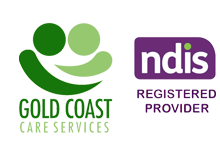So, the way that we see it, people who aren’t disabled have a bit of responsibility to try and help
improve the lives of people who are disabled. We feel that if you are going to support disabled
people, you have to join the crusade to try and give them a better quality of life. After all, it’s very
difficult to say that things are good for disabled people across the world. There are many who
are still treated like second-class citizens, and people who can’t get access to the basic support
they need to enjoy a nice quality of life.
This is definitely an ongoing problem, but it does ask a few interesting questions along the way.
How can we successfully create change for people who are living with the disability as an non-
disabled people? Well, essentially it means that we have to be in the corner, fighting their
battles with them. Take note, we are not suggesting that you fight somebody’s battles for them,
but being an ally to disabled people is no bad thing.
The more people that make noise about social change and reforms, the more likely that
powerful people are to take notice of the situation and think about doing something that will
have a positive impact on people who have a disability. There is that age old idea that you have
to be the change you want to see in the world, and to a large extent that is true. We have to
push for new reforms, help to get issues brought to the attention of people in charge, and
generally find ways to give people what they need most – true change.
Obviously, you have to be careful about how you try to do this. You run the risk of taking over a
situation for somebody who has a disability even though you may have good intentions about
helping them. You have to let them decide how they want to engineer change and then support
them in that decision. You can’t try and take that away from them, because it’s not your choice
to make.
Striking that delicate balance can often be difficult. Supporting disabled people will also mean
recognising their independence and right to fight their own battles, and it can take time to work
out how best to provide that support. Ultimately, it can be a very rewarding exercise for
anybody.
Disabled people will always welcome genuine allies who want to help improve their lives. It is an
ongoing struggle to get issues brought to the attention of people with the power to make
change, so help is always gratefully received. It is the responsibility of people who don’t have a
disability to provide assistance to those that do. We have to help empower them to bring about
the change they need in order to live rich and full lives. However, the way that we do this makes
all the difference, so we have to try and be discreet and flexible.
